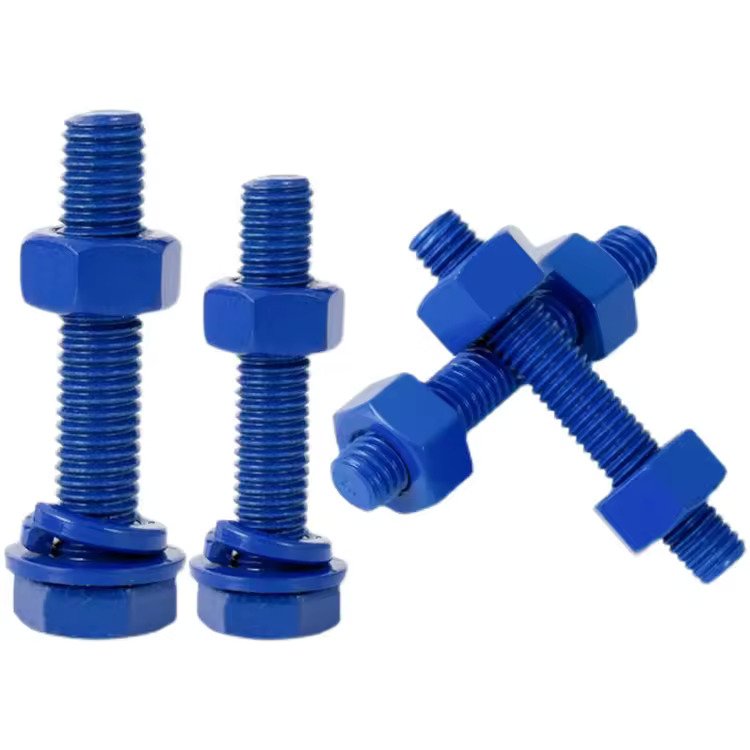Bolts play an important role in holding machines, structures, and equipment together. However, when they are exposed to harsh conditions like moisture, chemicals, or heat, their performance and life can reduce. This is where PTFE Coated Bolts stand out as a better option compared to standard bolts. Let’s understand the difference between the two and see which offers better protection.
What are PTFE Coated Bolts?
PTFE bolts are special fasteners coated with a layer of PTFE (Polytetrafluoroethylene), a non-stick and corrosion-resistant material. The PTFE coating on bolts helps them perform well even in tough conditions such as marine, chemical, or industrial environments. The smooth surface of the coating reduces friction, prevents rust, and makes the bolts easier to remove after long use.
What are Standard Bolts?
Standard bolts are usually made of carbon steel, stainless steel, or alloy steel without any special coating. While they are strong and widely used, they may not offer enough protection against rust, moisture, or chemical attack. Over time, these bolts can corrode, seize, or lose their strength when exposed to extreme environments.
Key Differences Between PTFE Coated Bolts and Standard Bolts
1. Corrosion Resistance
PTFE coated bolts provide excellent resistance to corrosion. The PTFE layer acts as a shield that keeps moisture, salt, and chemicals away from the metal surface. Standard bolts, on the other hand, tend to rust or corrode when used in humid or salty conditions.
2. Friction and Torque
PTFE bolts have a very low friction surface, which means they require less torque during tightening. This helps in easy installation and reduces the risk of over-tightening. Standard bolts usually have higher friction, which can cause wear and make removal difficult later.
3. Chemical Resistance
PTFE coating on bolts offers high resistance to most chemicals and acids. This makes them ideal for use in industries like petrochemical, food processing, and water treatment. Standard bolts may react with chemicals, leading to damage and reduced performance.
4. Temperature Resistance
PTFE coated bolts can handle both very high and very low temperatures without losing their properties. They maintain their strength and coating even under continuous exposure to heat. Standard bolts may lose their protective layer or strength when exposed to extreme temperatures.
5. Lifespan and Maintenance
Because of their strong protective coating, PTFE coated bolts last much longer and require very little maintenance. They remain smooth and functional even after long use. Standard bolts may need frequent replacement or inspection due to rust or wear.
Which One Offers Better Protection?
When it comes to protection, PTFE coated bolts clearly offer better performance than standard bolts. The PTFE coating provides superior resistance to corrosion, chemicals, and heat. It also ensures a longer service life, easier installation, and smoother operation. For applications where durability and reliability matter, choosing PTFE bolts is a smart and cost-effective decision.
Conclusion
Both types of bolts have their uses, but PTFE coated bolts provide extra safety, strength, and durability in demanding conditions. The PTFE coating on bolts not only enhances their lifespan but also improves performance in tough industrial environments. For long-term protection and better results, it is always wise to select products from trusted PTFE coated bolts suppliers who provide high-quality fasteners suitable for all types of applications.





